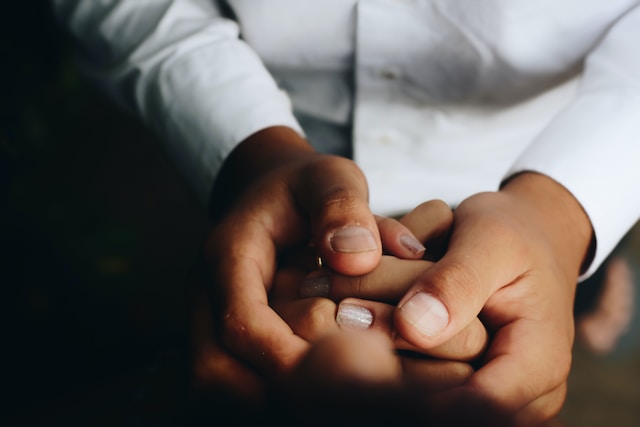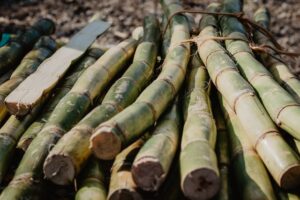Prior to 2012, Belizeans were required to pay fees for healthcare services provided at public hospitals – straining resources further and raising administrative costs significantly.
Now, fee collection for healthcare visits at public hospitals has been eliminated as an official requirement, helping improve patient care while freeing healthcare facilities to focus on increasing quality instead of revenue generation.
Medical Donations
Healthcare services in Belize have struggled to keep pace with increasing demands from rural and underserved areas, particularly wheelchair donations made by several organizations that help those in need live more independent lives. These donations also allow people who require basic assistance for disability to remain independent lives.
The Church of Jesus Christ of Latter-day Saints (LDS Church) donated 349 wheelchairs and other mobility devices to disabled individuals in Belize through partnerships with other groups like Malolos Philippines Stake and Resources for the Blind Inc. These wheelchairs were donated through its Relief Society; Repair kits were supplied by Relief Society members.
Belize, located between Central America and the Caribbean, will soon receive a shipment of medical supplies containing respiratory therapy equipment from Probitas Foundation, beginning this year. The supplies will be distributed to its National Medical Laboratory serving over 100 patients daily at San Narciso Polyclinic in Belmopan township – this latest donation from Probitas comes as part of a larger project intended to expand access to diagnostic services while meeting Belize’s goal of providing quality healthcare access in remote communities.
Food for the Poor (FFTP) has long been a reliable partner to Belize and has contributed more than 38 tractor-trailer loads of medical, educational and food items since 1999. Furthermore, in response to the COVID-19 crisis, they sent oxygen generators and related equipment which enabled medical practitioners to care for patients suffering from respiratory illness due to COVID. If left untreated it can often prove fatal.
Project C.U.R.E Young Professionals of Denver recently visited Belize to assess the effects of their shipment of medical supplies and equipment to Belize in 2020. Dianna Fetter and Lori Powell from Project C.U.R.E were amazed at its impact, noting its benefits to remote communities like those found within Toledo District.
Funding
Funding plays a critical role in Belize’s healthcare system, particularly rural and underserved areas. All medical services available through public health are funded by the Ministry of Health but its budget often cannot meet all healthcare needs that may arise.
Karl Heusner Memorial Hospital (KHMH) received essential medical supplies from the U.S. Embassy in Belmopan through their Humanitarian Assistance Program donation, headed by Bilateral Affairs Officer Major Anissa Johnson at their Security Cooperation Office Major Anissa Johnson. Along with catheters, sanitization items and isopropyl alcohol supplies provided from this donation from DOD; KHMH also received gloves, biohazard containers, and other supplies that will support staff efforts to prevent disease spreading at Belize’s largest referral hospital
Rush University’s Belize Immersion Experience brings a group of current and aspiring healthcare professionals on an interprofessional service trip focused on building homes for families in need, while simultaneously providing unique cultural immersion and an understanding of healthcare disparities within Belize.
This year’s RUBIE team engaged in various projects, from aiding HIV clinics and geriatric centers, to working alongside nurses at an outreach center serving pediatric HIV patients in Belize City. By working in these settings, students developed their clinical skills while also gaining greater appreciation of those living with HIV/AIDS.
RUBIE conducted conversations with 25 key informants from the government, private sectors, and civil society on HIV and related diseases such as diabetes that impact population health. Their findings indicated that more support for community-based programs that address discrimination against those living with HIV as well as metabolic syndrome issues could help Belizeans improve their overall health status.
Volunteering
Belize provides many volunteer opportunities to aid communities in need. From improving healthcare services to aiding with community development projects, Belize welcomes volunteers from all backgrounds. Rural Belize faces great healthcare needs due to many families living below the poverty threshold; rural villages often lack access to doctors or medicine thus relying on traditional remedies that could use some help from volunteers in improving the quality of life for its inhabitants.
The Belizean government has made substantial investments to improve its public healthcare system. Primary hospitals are located in Belize City while secondary and tertiary care is offered at over 50 for-profit clinics as well as four nonprofit facilities that offer care at reduced or no costs to some population segments. Furthermore, government support is given to private facilities providing free or reduced-cost services to specific segments.
Even with these improvements, Belize still faces a high demand for healthcare services. Due to a high rate of poverty, monthly expenses outpace income. As such, rural areas where most Belizeans reside lack sufficient health professionals.
Volunteers can support rural Belizeans’ healthcare needs by providing essential medical supplies and treatment. Organizations also rely on volunteers’ services to educate people on healthy habits such as washing hands regularly, brushing teeth twice a day and taking medications on time. Other projects focus on strengthening infrastructure within the health system by building clinics or training staff on new technology.
Healthcare volunteer opportunities in Belize tend to focus on major cities such as Belize City and San Ignacio, offering volunteers the chance to gain experience in healthcare while making connections within their community. This work can be extremely fulfilling.
Other volunteer programs can be found in small towns and villages throughout Belize, providing vital healthcare, safety, education, and employment services to remote or impoverished communities. As some programs require specific skills or education before applying, it’s wise to conduct thorough research on all available volunteer opportunities before making your application.
Impact
Belize boasts an emerging healthcare system. The government subsidizes public hospitals that are free or low-cost for citizens; however, shortages in medical supplies and equipment exist in rural and underserved areas of the country. Regardless of these challenges, medical professionals in Belize remain dedicated and caring towards patients by making house calls often; however, due to equipment restrictions, they cannot always offer optimal care to each of their patients.
Due to this, many expats travel to nearby countries such as Mexico or the US for medical treatment – an expensive but necessary step if they suffer from life-threatening conditions.
Though Belize’s public healthcare system may be limited, it offers an ideal low-cost or even free alternative to more costly US facilities. Furthermore, those living there can take advantage of lower pharmaceutical costs and shorter wait times for appointments.
Recent years have seen a major restructuring of their healthcare system. A reform project includes the formation of four health regions that provide primary and secondary healthcare to specific geographic regions, while the government reorganized their private sector to include more for-profit and non-profit facilities; currently, over 50 for-profit clinics are providing similar services at comparable costs to what can be found in the United States.
To aid Belize’s government in improving its healthcare system, the U.S. Embassy has donated various medical supplies including gowns, soap dispensers, disposal containers, and patient utility kits as well as three state-of-the-art oxygen generators – an extremely generous gesture that will improve patient care in Belize’s healthcare systems.
This qualitative study sought to understand what factors motivate individual donors’ decisions to support community and humanitarian projects, by conducting a salient belief elicitation with ninety Belizean adults. Their responses revealed some common motivators behind contributing to CFC.




